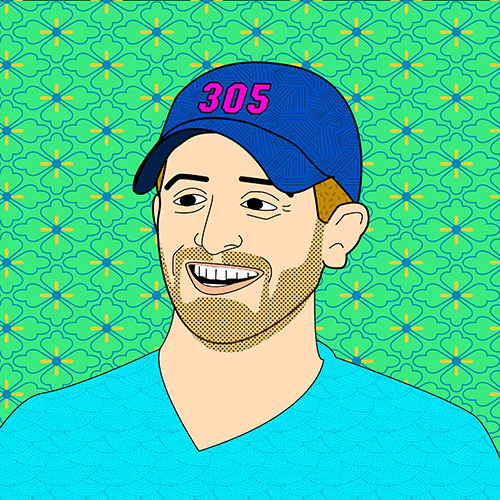
It’s generational trauma time!
Longtime readers are thoroughly familiar with my parents’ status as Cuban refugees. They came to this country with nothing, struggled to learn the language, busted their asses for decades to build academic and professional careers, and carved out a modicum of success in their adopted country.
60 years later, their son sits in a Doral Wendy’s (free Wi-Fi, by the way) with sufficient disposable time and bandwidth to type up the little essay you’re reading while he waits for a mechanic to service his car. It’s the Great American Immigrant Success Story writ large.
But there’s baggage associated with that success. I, like so many other Miamians, am separated from my ostensible madre patria by a psychological chasm because, well, it doesn’t exist. My parents’ Cuba is long gone—ground to dust by a half century of despotism, economic incompetence, and global geopolitical machinations. Beyond certain cultural totems, I have extremely little in common with Cubans on the island. My upbringing, education, clothes, outlook, even the Wendy’s I’m sitting in, would be completely alien to my ethnic compatriots in Havana or Camagüey.
My cultural grounding therefore isn’t Cuba, but Miami. I grew up on Jamaican dancehall, Dominican bachata and merengue, Boricua reggaeton, and Colombian cumbia. My accent is a pan-Caribbean chimera flecked with Brazilian idioms (nossa!). I dance LA style salsa (on one) and will still break it down to old school Miami booty bass. I love arepas, feijoada, chaufa, churrasco, tchaka, ropa vieja, and tortilla española. These disparate threads belong to myriad countries and cultures but, when interwoven, make Miami a glorious, prismatic mosaic. They make me who I am.
Miami is my only home, the only possible place on the planet where I can be unapologetically myself.
Paired with that belonging is a pervading uncertainty. My family history illustrates that absolutely everything—one’s community, expectations, potential, dreams—can be snuffed out in an instant. It happened to my parents and it can certainly happen to me. I therefore desperately crave stability. It drives everything I do professionally, creatively, and civically. I can’t fall back on anything my antecedents built in Cuba, so Miami is my only recourse.
There is a Cuba-shaped hole in my soul that only Miami can fill. I have but a handful of precious tokens my family smuggled out of the island. I can’t even visit ancestors’ graves. Everything I possess, including my sense of self, was very recently acquired. The thought of inheriting and perhaps bestowing my parents’ house to subsequent generations is mind-boggling. I want, I need it so badly it hurts.
That’s why the possibility of losing Miami and what my family and I built here is so devastating. I am not interested in further proving the undeniable scientific consensus that South Florida is one of the most vulnerable regions in the world to climate change. Our streets flood more frequently, the summers are hotter, and the hurricanes are stronger. Anyone who has stepped outside in the last few years can tell you as much. My city is under existential threat and the thought that I might have to flee it is my worst nightmare.
I have no greater fear than reliving my parents’ trauma. There is a very real possibility that tens of millions of people around the world will become climate refugees in my lifetime. I and many of my fellow Miamians could be left truly unmoored—culturally adrift, unable to find purchase in our long-lost motherland or newfound homeland.
I understand that starting a new life in the Northeast, North Dakota, or any other relatively climate stable location is not nearly as dramatic as my parents’ flight from Cuba. After all, I already lived in Boston, D.C., New York, North Carolina, and South America. However, I could always come back to Miami. I always had a safe harbor to which I could return.
Beyond subjecting me to a massive economic loss in the form of abandoned hard-won generational wealth, leaving Miami forever would break me. Everything I love is here: the mangroves, the culture, the music, the family, the friends, the feeling of belonging. I can’t lose this place without losing myself.
I don’t yet believe all is lost. I published several pieces (see here and here) laying out how Miami could survive a rapidly changing climate. Disturbingly, however, our current municipal, state, and federal leaders are not making the hard decisions or necessary investments to save my hometown. Nevertheless, that won’t stop me from fighting like hell to ensure Miami remains a viable, equitable, livable city my descendants can inherit. After all, I have nowhere else to go.
If you like our stories, buy our book!
